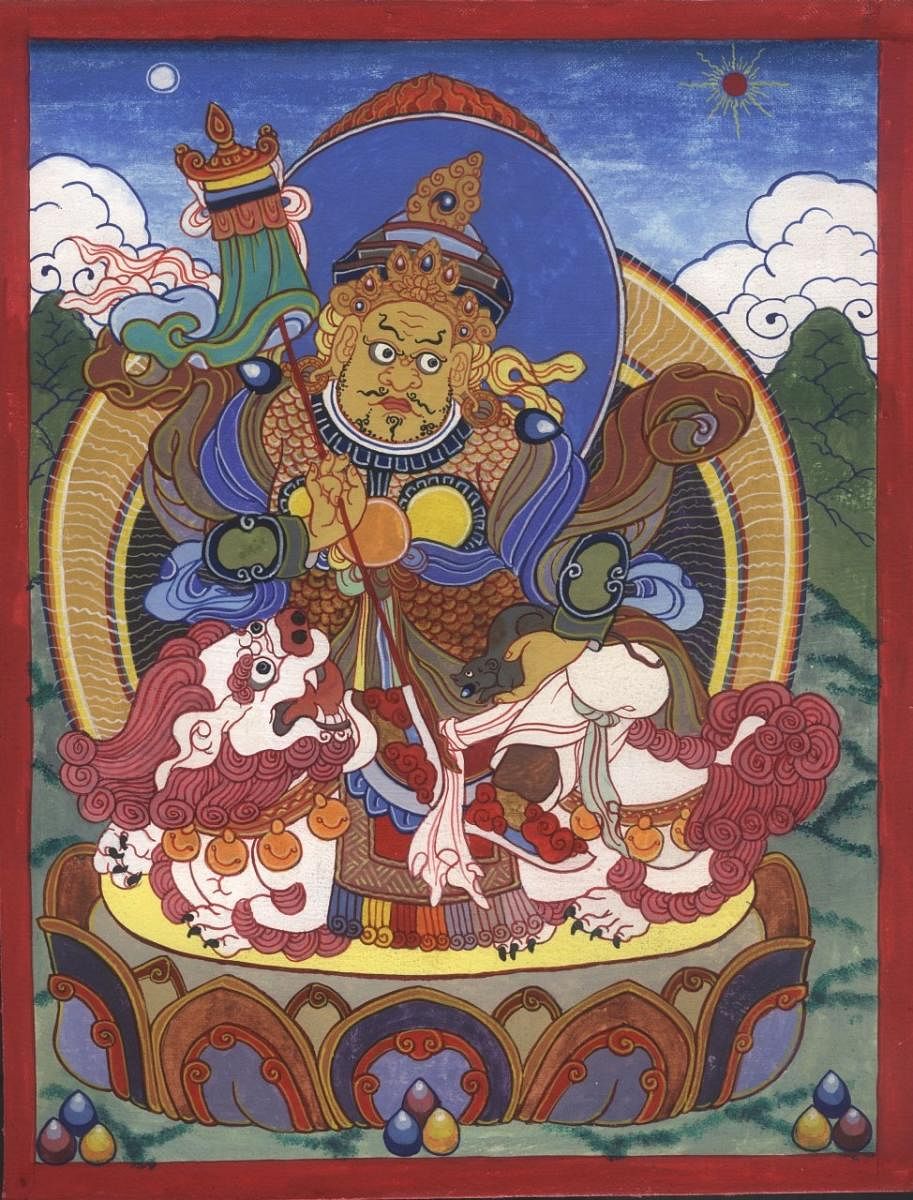
It is interesting how fantasy and reality are intertwined in folklore. While Kubera, the god of wealth, occupies a place of pride in classical mythology, the village folk treat him as one of them. In this story, (not found in the classical version of the Mahabharata) Kubera earns their respect, not because of his wealth or superhuman powers, but because he is a thrifty farmer who respects labour and the grains he grows.
Gandhari celebrated the Gajagowri feast without inviting Konthyamma and the Pandava brothers. Konthyamma waited, wondering why her sister hasn’t invited her. “What wrong have I done? What crime have my children committed? Why did Gandhari humiliate me thus?” wailed Konthidevi over and over again. The sons were greatly upset. Then Arjuna wiped her tears and said: ‘What aunt Gandhari worshipped was an elephant made of clay. You shall perform the Gajagowri feast too, mother. For your feast, I shall bring the divine Airawatha from the world of Indra’.
Meanwhile, Krishna wrote a letter to Kubera, the god of wealth, and sent Bhima with it to bring money and gold needed for the Gajagowri feast. Bhima arrived in Kubera’s palace carrying the letter. Kubera was busy driving his cattle to graze in the evergreen pasture. The cattle walked to the pasture, dropping little mounds of dung all the way. Inside the dung were ragi, paddy and all the millets, cereals and seeds they’d grazed.
Kubera collected these mounds of dung and piled them up before his palace. He would mix little mounds of dung with water, sift the grains, wash them, and throw the dung water into the manure pit. He would then sort out the grains and seeds, salvaged from the dung, and dry them in the sun.
Watching Kubera, Bhimanna thought, ‘What a miser! Why did I come to borrow from such a person? What can he lend me?’ Noticing Bhima, ‘Come, son!’ said Kubera inviting him in. Having heard Bhima grumble, Kubera decided to teach him a lesson. He gave Bhima water to wash his hands and feet and seated him on a cot.
‘What brings you here, son?’ he asked Bhimasena, who handed him the letter Lord Krishna had sent. When he’d read the letter, Kubera looked at Bhima smiling. He seated Bhima before a golden plate and served him diamonds, pearls and gems.
‘You must be hungry after the journey. Do eat’ he said.
‘How can anybody eat diamonds and pearls?’
‘Exactly, my dear Bhimanna. I served you these because you snorted when you saw me pick grains from the ground. Listen! It is food grains which keep us alive. Food is more precious than gold. There’s no god greater than food.’
When Bhimanna heard these words, he said: ‘Please forgive my vain words, I fall at your feet.’
‘Now, tell me. What weighty errand brings you here?’
’My mother is performing the Gajagowri feast. Kings of 56 countries will attend the feast. Pray, give us the money we need for the feast.’
‘I will, Bhimanna. But tell me how it feels to take money from me and return it. When you have answered that, you can take the money.’
‘I’m grateful you didn’t say no. I’ll ask my brother Dharmaraya, and get back to you. Permit me to take leave.’
‘I can’t let you leave without offering you food. Have your meal before you go.’
When Bhimanna returned home, the sparkle on his face filled Dharmaraya with joy. ‘Come! Tell us quickly how your errand went.’
‘Kubera will give us the money. But he wants to know how it feels to take money from him and return it’.
Dharmaraya then instructed Bhima. ‘Go and tell Kubera: Taking a loan is like losing the eldest son, returning it is like the dead son coming back to life’.
Back to Kubera’s city came Bhima. When Kubera heard the answer, he loaded elephants, horses, camels and bullock carts with money, and sent Bhimanna back.
Translated by Laxmi Chandrashekar
Folktales from the Mahabharata is a monthly column that features lesser-known episodes from ‘Janapada Mahabharata’ sung by eminent folk-artiste Bettada Beedu Siddhashetty and published by Dr P K Rajashekara.